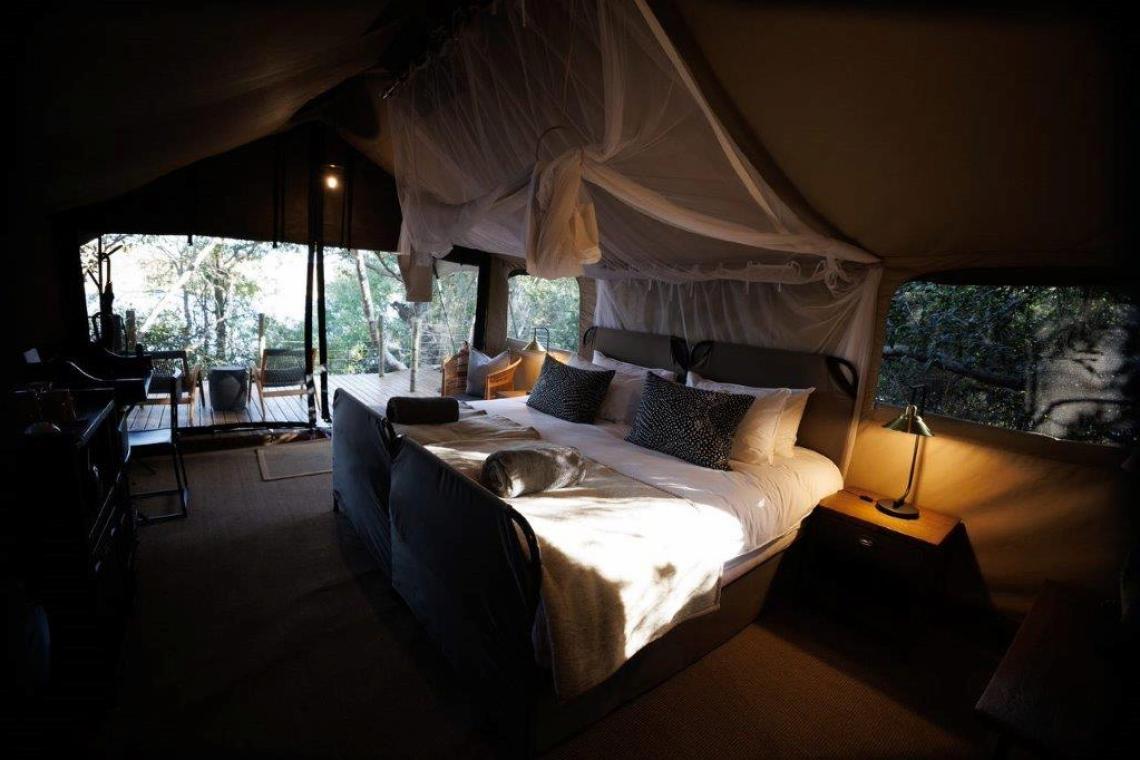Luxury safari lodges such as Tsowa walk an environmental tightrope mainly invisible to guests, so we decided to go behind the scenes to give you a detailed glimpse.
“Among the most important guest requirements these days is a good bed, good food, reliable wifi and confidence in the property's environmental credentials,” says Eric Murahwa, GM at Tsowa Safari Island.
We’re sitting around the evening fire, a ubiquitous African safari event. A chill has arrived with the darkness, but blankets are available – as efficiently provided as the sundowners. It’s easy to forget the effort it takes to run this kind of operation.
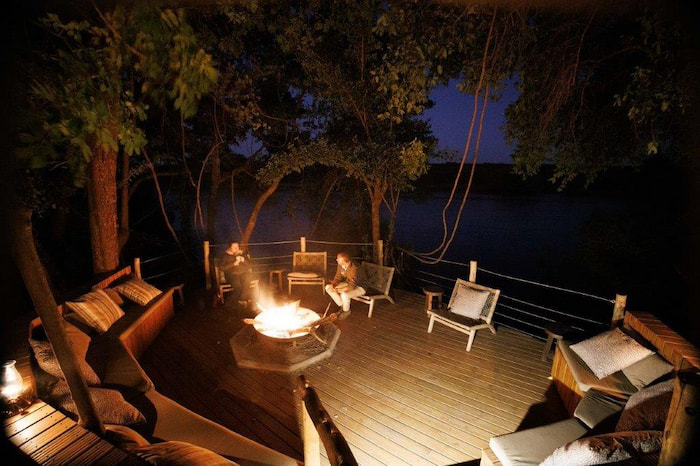
Evenings by the fire are the quintessential African bush experience.
The luxury lodge is situated on a lush sliver of an island in the Zambezi River. Catering to premium tastes in such a remote location inside the Zambezi National Park and as unobtrusively as possible is no easy task.
Mostly, everything goes according to plan. When it doesn’t, Eric has an easy answer: “If you don’t have natural challenges, then you are not in the bush!”

GM Eric Murahaa
The island is situated some 40km upstream of Victoria Falls and is one of very few of its kind in the region. Guests generally arrive via road transfer followed by a short boat trip.
It opened in 2019 with four upmarket tents. When COVID shut tourism down, five more tent suites were added. Tsowa reopened at the end of 2021.
It is the latest of four properties in the Isibindi Africa Group, a company with a solid environmental focus in operations and its offering. Tsowa is the only of its properties outside South Africa and KwaZulu Natal and is also the first of the company properties located inside a national park.
It occupies a splendid location, hidden from view by natural undergrowth. In the mornings, the bush comes alive with birdsongs. Other visitors one must be on the lookout for are the occasional elephant and monkeys.
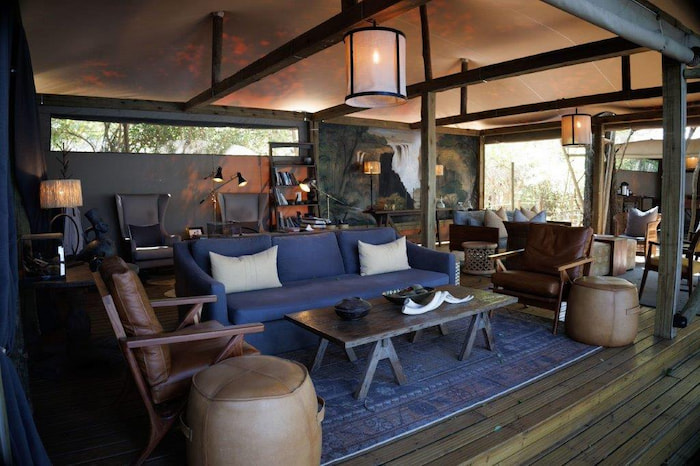
The front-of-house staff at Tsowa relies on innovative solutions to provide a luxury experience
Protected areas like this present an entirely new layer of complexity to operations. In Zimbabwe, this means submitting to audits by Zimbabwe’s Environmental Management Agency (EMA), a statutory organisation.
The concession requires all lodges to have the most negligible possible impact, says Eric. In the case of Tsowa, most of the construction rests on wooden decks. In this way, at least some disturbance of soils, fauna, and flora is avoided, and it can be removed with as little trace as possible.
“I reckon the lodge can be completely dismantled within 10 days,” Eric muses.
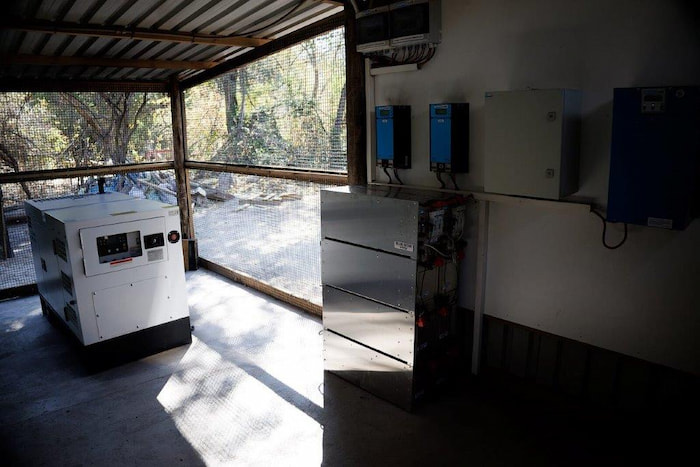
Solar power is stored in on-site batteries while a diesel generator is on standby.
In some cases, such as the kitchen, office, stores and workshop, buildings are made of metal sheeting on shallow “floating” foundations.
All energy needs for the property are provided by solar and gas. The latter is used to supply a consistent source of hot water for the guest accommodation and kitchen. Solar panels connected to batteries power the lights, fridges and a few plugs (including USB ports) dotted around the guest facilities. “We also have a diesel generator on standby,” Eric says.
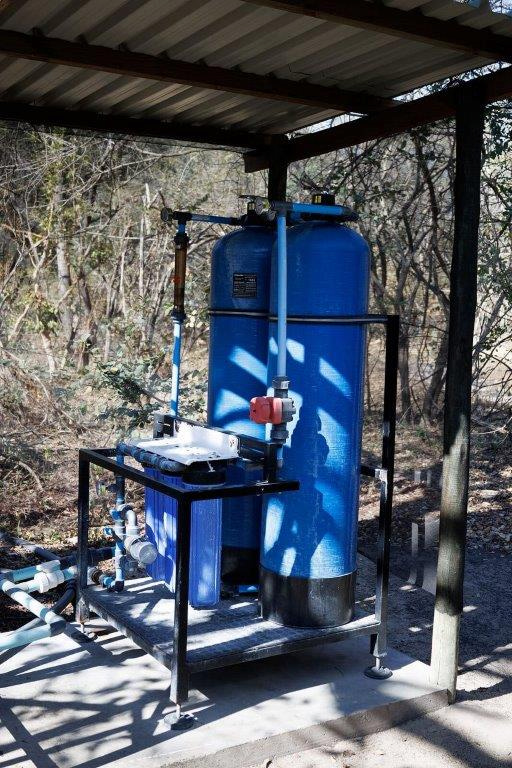
Water is drawn from the Zambezi and filtered for use on the property.
Tsowa currently uses an antenna and dish for land-based internet transmission.
Tsowa’s water requirements are fulfilled by the river that surrounds it. Water is drawn from the Zambezi and purified before being piped to the kitchen and accommodations. In researching this story, I came across a 2021 report by the Swiss aquatic research institute EAWAG that declares the Zambezi “still carries very clean water”.
The effluent at the lodge is dealt with using soak-away drainage. In the case of black water, septic tanks are employed before the effluent reaches the soak-aways.
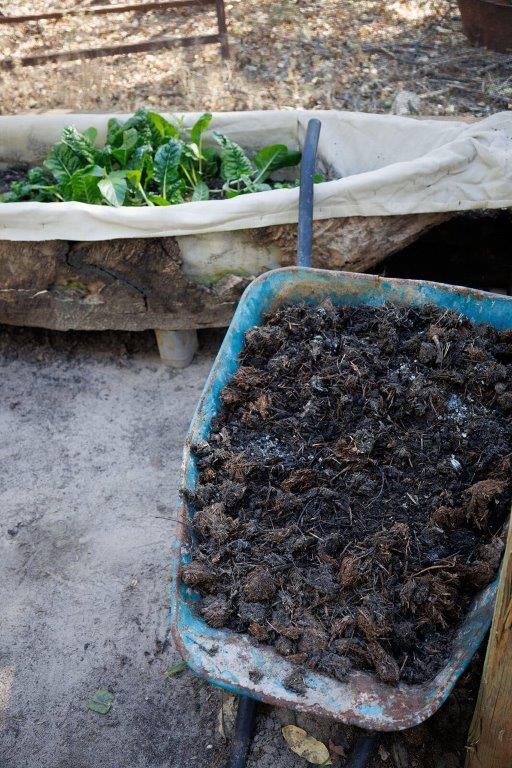
The kitchen is experimenting with an elephant dung mix for compost
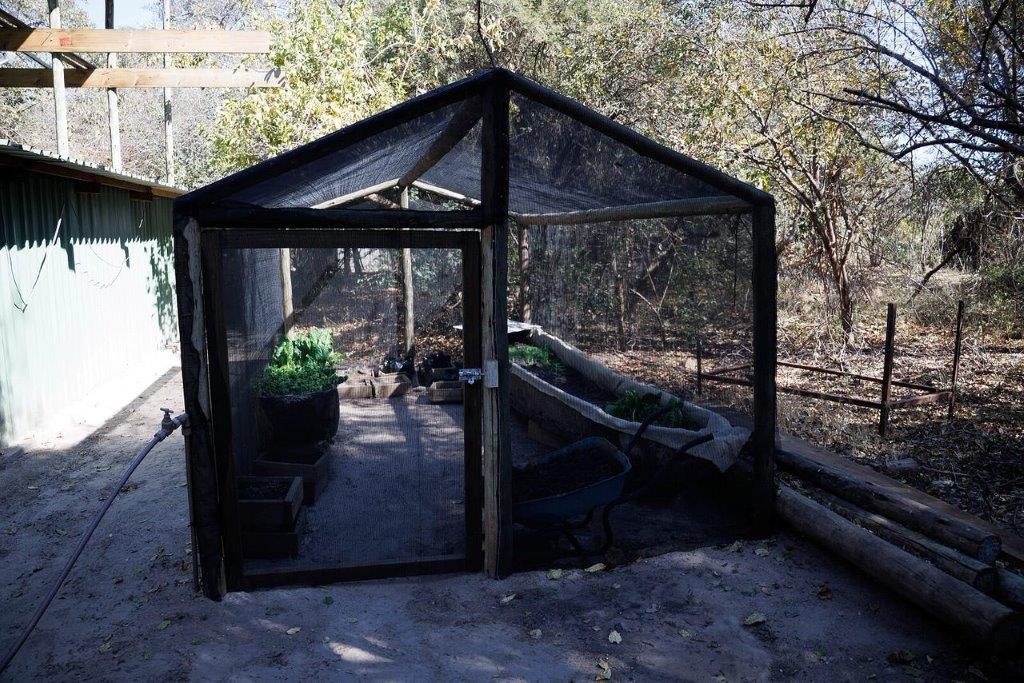
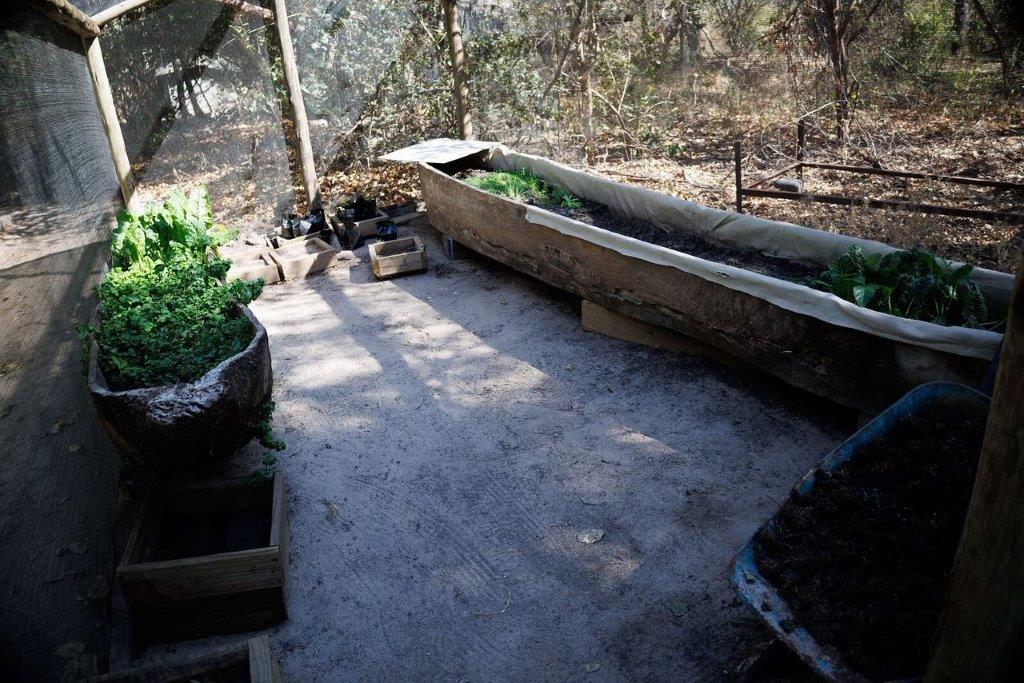
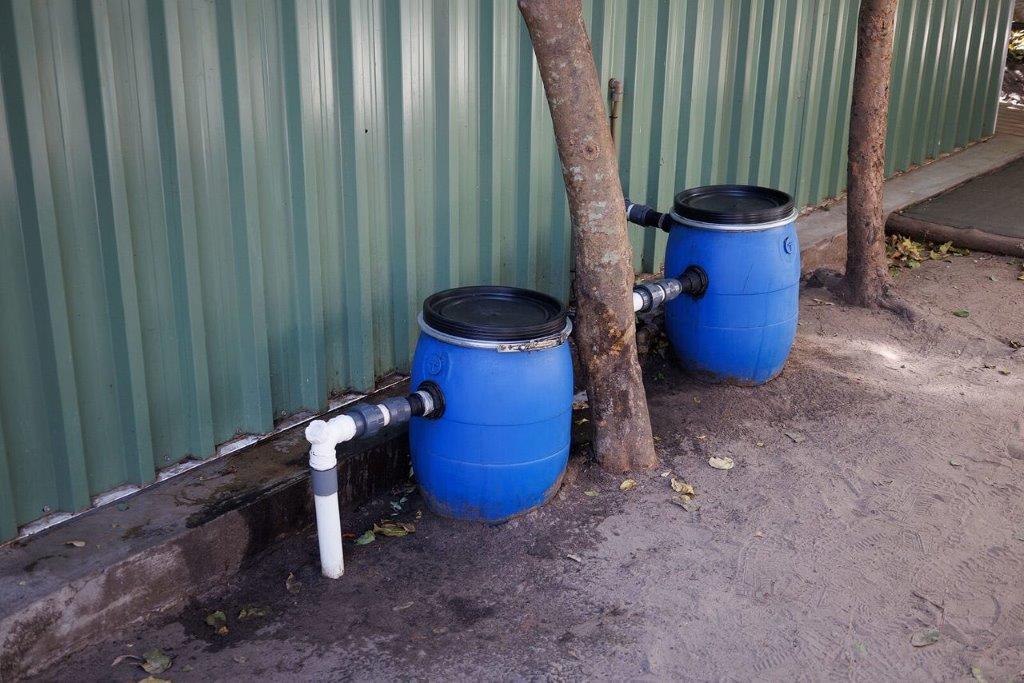
Regarding supplies, Tsowa’s location close to the regional centre makes it easy to re-supply, and chef Elton Moyo tells me that trips are undertaken about once a week.
Fresh produce is also purchased from nearby farms, and he’s also testing a small planter garden as a potential supply of some necessities. He shows me the 3x5m enclosure covered with netting to keep out monkeys and hopefully deter elephants.
“We’re developing a composting system with a worm farm to deal with appropriate kitchen waste,” Elton says. Microbe-rich elephant dung is mixed in as an activator.

Chef Elton Moyo
As planters, the team has employed two old dugout canoes or mokoros abandoned by their owners and filled the boats with homemade potting soil. The mint, spinach, and garlic were thriving on this visit.
Not all the work is focused on the lodge, however. Eric says that relationships with local communities are being forged at Tsowa. Most recently, the company funded a village borehole.
As with other properties in the company, guests contribute to a bed night levy used to implement the community and conservation projects. Amongst other initiatives, the levies have funded clean-up campaigns at the Isimangaliso Wetland Park and Kosi Bay and anti-poaching projects such as guide training in the Zambezi National Park.

